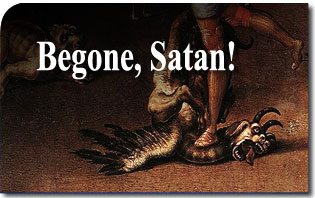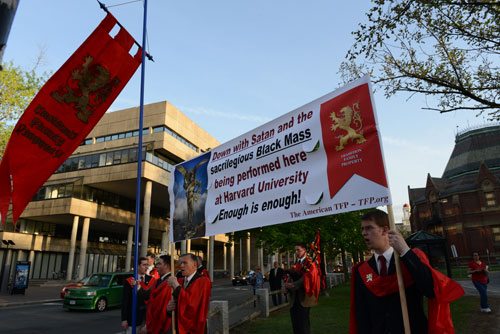 Reason shows that we should have a sense of gratitude towards those who do us good and a desire to somehow give something in return. This feeling inclines us to love and respect and, depending on the case, to revere such benefactors.
Reason shows that we should have a sense of gratitude towards those who do us good and a desire to somehow give something in return. This feeling inclines us to love and respect and, depending on the case, to revere such benefactors.
Ingratitude is the opposite of this natural feeling.
Ingratitude, a “Daughter of Pride”
Someone once said that “ingratitude is the daughter of pride.”
Indeed, ingratitude is the refusal to accept that one owes the benefactor a favor. While we like to receive favors, our self-love makes us feel humiliated by owing someone something. He who gives something is in a position of superiority over the one who receives and this shocks our pride.
Extreme ingratitude can lead to hatred of the benefactor, with a consequent propensity to offend, ridicule, slander, and if possible, destroy him.
The Gratitude Due to God
Now, in the natural order, there is no greater good than life. And we receive life from God, through our parents.
God not only gave us life, along with all the wonders of the universe, but continues to sustain and assist us in our needs. And He has done infinitely more than that: through the Incarnation, Passion and Death of Our Lord Jesus Christ, He has redeemed us from the sin inherited from our first parents and restored us to the life of grace.
Hence we owe the Creator the greatest gratitude and utmost respect through worship.
However, when man, due to his weakness, abandons God’s Law or fails to worship Him properly, he practices an act of ingratitude to the One to Whom he owes everything. If he repents and asks forgiveness for this ingratitude, he will be forgiven. Unfortunately, however, that is not always the case. Instead, pride can lead him to disdain forgiveness and even to revolt against this new offer of forgiveness. Driven by satanic pride, the human creature not only departs from God but even begins to hate Him.
The next step is for man to join, with his own hatred, the hatred of the fallen angel against God and make that angel his “god.” This is how one arrives at Satanism.
Hatred of God through the “Black Mass”
In the Old Testament the worship of God was done primarily through the sacrifice of animals that prefigured the sacrifice of the Lamb without blemish, Jesus Christ on the Cross, for our redemption.
In the New Testament, the supreme act of worship of God is the Holy Mass, which renews in sacramental form the sacrifice of Calvary, in adoration, thanksgiving, propitiation, and petition. Through it, the merits acquired by Our Lord Jesus Christ by His death on the Cross are applied to the living and to the souls in Purgatory.
The Holy Mass is the supreme act of worship of God. The “Black Mass” is the supreme act of hatred of God.
The “Black Mass” is a Mass celebrated (or staged) not in order to worship God but to worship the devil, and thus it is a manifestation of satanic hatred for God.
When performed by an unworthy priest, it is a distorted liturgical act, but even without the priest, it is a grotesque parody and a horrendous sacrilege, one of the gravest sins against God. For according to moralists, “deliberate and notable irreverence towards the Holy Eucharist is reputed the worst of all sacrileges.”1
Holy Indignation
This sacrilege is even more serious and shows greater hatred when committed publicly and stridently, as in the failed attempt in Harvard and now at the one scheduled in Oklahoma City.
An offense against God, especially a public and ostensive one, must be met with a proportional act of love and awaken holy indignation in those who love Him and are grateful to Him.
This virtuous indignation is necessary, for as Saint John Chrysostom says, “without anger, teaching will be useless, judgments unstable, crimes unchecked.” 2
Our Lord was angry and showed holy indignation numerous times facing the treachery of the Pharisees; and He went so far as to use physical force to expel the moneychangers from the temple.3
And Prophet Jeremias says, regarding God’s indignation: “But the Lord is the true God: He is the living God, and the everlasting king, at his wrath the earth shall tremble, and the nations shall not be able to abide His threatening.”4

Indignation that leads to fight
Facing the open and brazen advance of Satanism, the public and notorious hatred of God, our attitude should be one of reparation and opposition.
Reparation is done by means of prayers and sacrifices, to appease the just wrath of God and implore His mercy. Opposition is made by seeking to prevent, by all legal means, the consummation or repetition of sacrilegious acts.
Among other things, one means of opposition would be signing and spreading the e-Protest Against This Public Sacrilege, promoted by TFP Student Action.
Facing the brazenness of Satan’s henchmen, let us recall the words of the Savior: “Begone, Satan: for it is written, ‘The Lord thy God shalt thou adore, and him only shalt thou serve.’”5
Let us ask for help from the Blessed Mother, who crushes Satan’s head.6 And let us also pray to Saint Michael the Archangel, who defeated the evil angels in the heavenly battle.7
Footnotes
- Joseph F. Delany, “Sacrilege,” in The Catholic Encyclopedia, at http://www.newadvent.org/cathen/13321a.htm (emphasis ours).
- Quoted by St. Thomas Aquinas, Summa Theologica, II-II, q. 158.
- Cf. Matthew. 23, 23-35; Luke 19:46, Mark 11:15-19.
- Jeremiah 10:10.
- Matthew 4:10.
- Genesis 3:15.
- Apocalypse 12:7.

